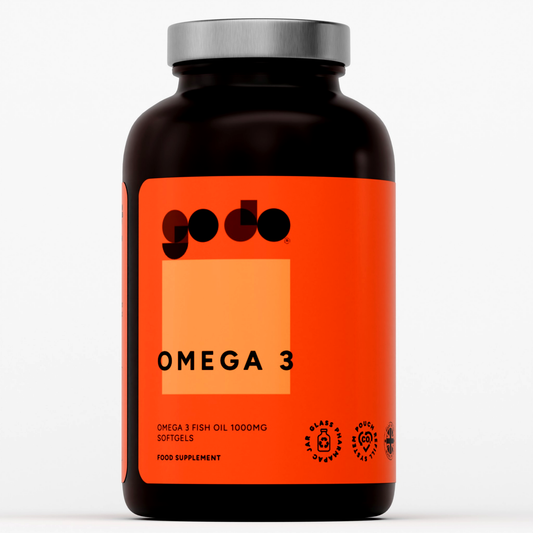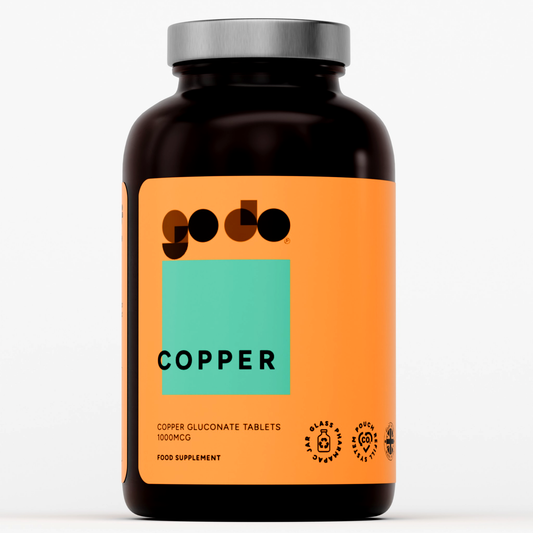Managing depression often requires a comprehensive approach, including therapy, medication, lifestyle changes, and sometimes, natural supplements. Some herbs and supplements are thought to help reduce the symptoms of depression. The market is full of many different nutritional supplements, and most aren't 100% safe and effective to treat depression symptoms. This article consists of the following supplement choices

Which supplements are best for depression?
Numerous studies are examining how supplements can help relieve depression or reduce depressive symptoms further. However, there may be a gap between quality and quantity in some studies and the study results should be considered. A Harvard-affiliated study was commissioned for publication by the prestigious American Journal of Psychology and the results provided a concise method of analyzing what works. To determine the effects of antidepressants on the brain and body, researchers analyzed the data to assess their effectiveness.
Supplements vs. Antidepressants for Depression
Some people choose natural supplementation over prescription drugs when dealing with depression. Some individuals with a nutrient deficiency can benefit most from a supplement. They have mild symptoms but can't handle some medications. A person's depletion of nutrition alone may lead to depression. In such cases, replenishments can improve mood in some people. Some people with minor ailments may be relieved by taking a supplement. Nevertheless, many people do not need supplement therapy when dealing with depression.
However, it's important to consult with a healthcare professional before starting any new supplement, or antidepressant medication, especially if you're already taking medications, as interactions can occur. Here's a list of herbs and supplements that have been studied for their potential effects on depression:

St. John's Wort (Hypericum perforatum): Often used for mild-to-moderate depression. However, it can interact with a variety of other medications used, including antidepressants, birth control pills, and blood thinners.
Omega-3 Fatty Acids: Found in fish oil and certain plant and nut oils, omega-3 fatty acids have been linked to improved depression symptoms.
S-Adenosylmethionine (SAMe): A naturally occurring compound that has been used in the treatment of depression and osteoarthritis.
5-Hydroxytryptophan (5-HTP): A precursor to serotonin, a neurotransmitter involved in mood regulation. 5-HTP supplements may improve mood and help with depression.
Magnesium: An essential mineral that plays a crucial role in brain function and mood regulation. Low levels have been linked to an increased risk of depression.
Zinc: An essential mineral that may influence depression. Some studies suggest that zinc supplementation can have an antidepressant effect treat depression.
Folate (Vitamin B9): Low levels of folate have been linked to depression. Supplementation may help alleviate symptoms, especially in people with a folate deficiency.
Vitamin D: Known as the "sunshine vitamin," low levels of vitamin D have been associated with depression. Supplementation may help improve mood.
Probiotics: The gut-brain axis plays a significant role in mental health. Probiotics can influence brain health through this connection, potentially alleviating symptoms of depression.
Ashwagandha (Withania somnifera): An adaptogen herb used in Ayurvedic medicine that may help reduce stress and anxiety, components of depression.
Rhodiola (Rhodiola rosea): Another adaptogen that has been studied for its potential to for mood disorders reduce fatigue and improve symptoms of depression.

Best St. John's Wort
Depending on the medication, St. John's wort may help treat moderate depression as effectively prescription medications such as selective serotonin reuptake inhibitors. This supplement is highly recommended but may also cause serious complications. 9. It is important that you determine the dosages and forms of St. Johnswort supplements. The majority of scientific studies have evaluated the safety and efficacy of two different herbs, namely hypericin and hyperforin.
A Word of Caution with St. John's Wort
St. Johnwort can help many people, but can also worsen their depression symptoms. Besides its effects, it can be a drug that interacts primarily with medications such as sedatives, antidepressants, allergies b vitamins, and a lot more. Sometimes these drugs are less effective, and sometimes reinforce the effects and can potentially cause serious side effects.
Best Vitamin D
They have vitamin D supplements ranging in value from 500 to 800 IU so they are sure to find the best dosage. Before taking Vitamin D, check blood levels to find any deficiencies. A qualified Dietician can assist with determining the appropriate amount for you. It should be noted that the studies on vitamins and supplements for depression, are inconsistent.
Thorne Vitamin D/K2 Liquid
Vitamin D is a vital nutritional component of the body with various functions. Although many individuals lack vitamin D, many are depression tolerant too. People with depression and bipolar disorder often have deficient Vitamin D levels. Those suffering from the disease usually have lower levels of vitamin D as compared to other individuals with similar conditions and the most significant depression is seen.
Ingredients & Potential Interactions
Ideally, it would be beneficial if supplement manufacturers would list all ingredients on their nutritional profiles and know which ingredients were used as part of the daily recommended dosage. If your medication is not absorbed by your bloodstream, you must take it with your prescription to ensure you do not miss out on any important nutrients. Many supplements used in preventing depression are known as affecting drugs and antidepressant medications can be used for the treatment of anxiety.
Depression Supplements that Need More Research
Various supplements have been developed to aid in maintaining healthy moods or to reduce depression symptoms. The majority of them don't have good research support. Some individual benefits might come from it, however, there are more detailed studies needed for strong recommendations.
How We Select Supplements
We work hard to be clear on the reasons for the recommendation. Please learn about our nutrition-based methodology here. Our company supports supplementation which is scientifically proven. We believe in promoting product attributes that are related to quality products. We prioritize the product whose testing and certification by the company is done through the U.S. Consumer Laboratories or NSF. The Federal Food and Drug Administration does not review nutritional supplements before putting them into production. Our team has formulated an amazingly detailed method for choosing the dietary supplements we suggest.
Last words
These supplements can offer support in managing depression, but they're not a substitute for professional medical advice and treatment. Always discuss with your healthcare provider before beginning any new supplement regimen to ensure it's safe and appropriate for your specific health needs.











